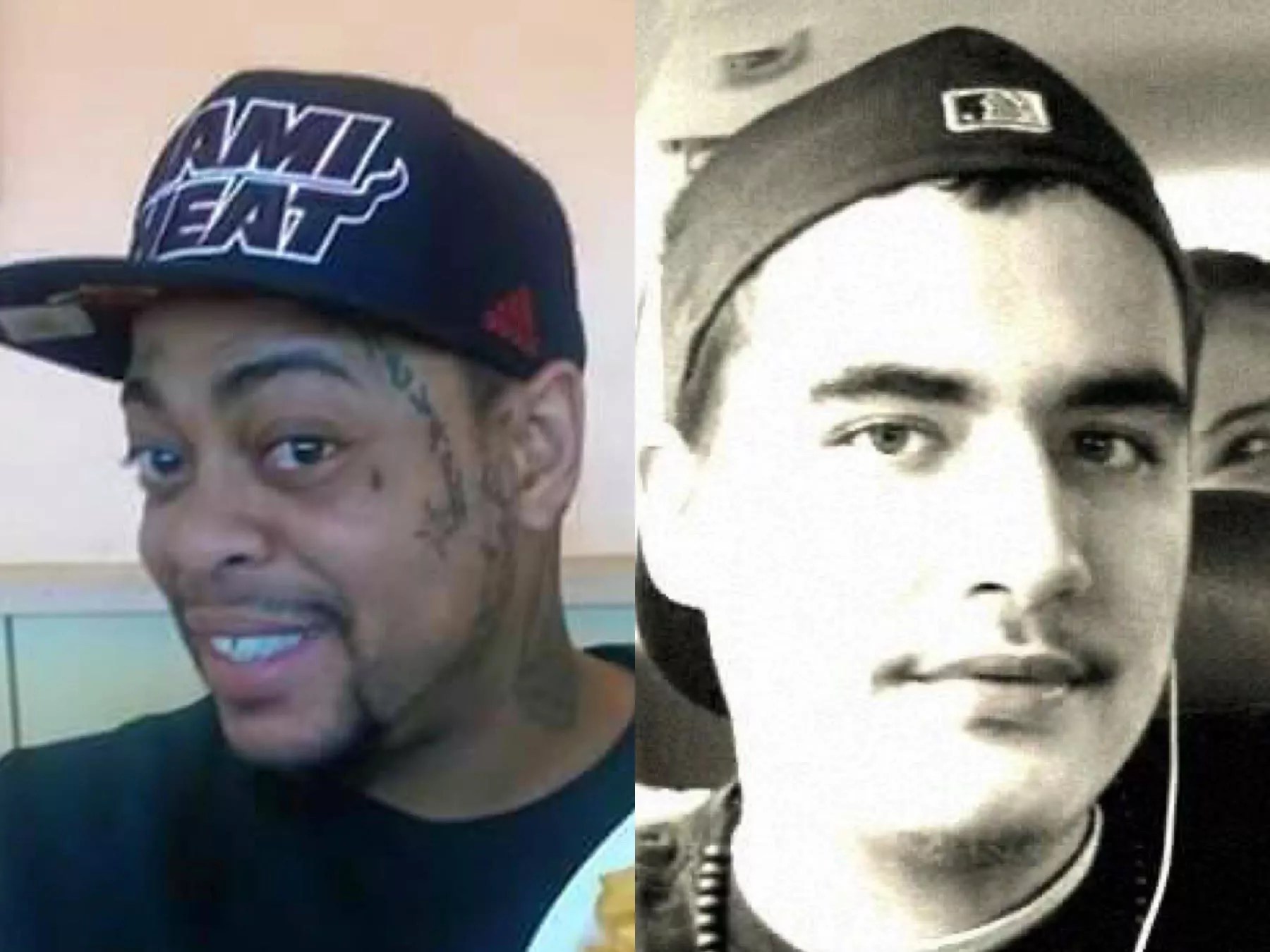
Photos courtesy of Crystal Foster/Amalia Villafane

Audio By Carbonatix
Amalia Villafane and Crystal Foster are unlikely friends. Villafane is a Colombian immigrant who speaks mostly Spanish. Foster is a Black woman who doesn’t. They live half an hour away from each other in Southwest Miami-Dade. By their accounts, they never should’ve met. But they’re inextricably linked through the tragedies that have come to mark their lives: Both women lost loved ones who were shot by South Florida police officers, and they’re seeking justice.
“Amalia is going through the same pain and processes as I am after a family member is shot by police. There is no grieving process, the pain never goes away, and you’ll never understand it until it happens to you,” Crystal Foster tells New Times. “Her fight is my fight, and my fight is her fight. We support each other, and it’s not just about my brother or her son, but all the other families out there.”
The women met during Melba Pearson’s campaign for Miami-Dade state attorney last summer, determined to unseat Katherine Fernandez Rundle, who in her 27 years in that position has never charged an officer in a fatal police shooting. Though Pearson lost the election, that hasn’t stopped the women’s resolve to get the officers who shot their loved ones criminally indicted; both believe their cases were unjustly closed.
Today they’re traveling together from Miami to Washington, D.C., to join more than 300 other families from across the nation who lost loved ones in officer-involved encounters and are participating in the Families Impacted by Police Brutality March on Washington. Tomorrow, on the 58th anniversary of the historic 1963 March on Washington for Jobs and Freedom, the group will gather at The Ellipse park just south of the White House at 11 a.m. Villafane and Foster will join other speakers in telling the stories of their loved ones and their fight for justice. Afterward, they will march to the headquarters of the U.S. Department of Justice. The group is demanding that all cases of police brutality be reopened and rigorously reinvestigated.
“There’s power in numbers,” Foster says. “This isn’t a moment but a movement.”
In July 2015, Crystal Foster’s brother, Edward Foster, was walking home after buying dog food from a corner store in Homestead. Foster says her brother didn’t provoke anyone. Witnesses state that the 32-year-old was on the ground and with his hands on his head when Homestead Police Officer Anthony Green shot him several times in the back. A gun was recovered near Foster’s body. He was pronounced dead on the scene.
Steadman Stahl, president of Miami-Dade’s Police Benevolent Association, told the Miami Herald that Green was dispatched in response to a call about someone with a weapon in a park. Green said that he feared for his life when Edward Foster pointed a gun at him. Edward Foster’s death marked Green’s third fatal on-duty shooting in 11 years.
For five years, the case remained open in the State Attorney’s Office. Last year, Melba Pearson joined the Foster family in a countywide caravan seeking a decision from Rundle’s office. Soon after Rundle was re-elected last November, her office closed the case with no indictments.
“We keep trying to get justice in Miami, but we’re not going to keep it local anymore,” Foster vows. “Locally, nothing’s getting done. I’m taking it on a national level – that’s why I’m going to Washington.”
Amalia Villafane understands Foster’s frustration. In May 2012, her 16-year-old son, Sebastian Gregory, was walking in the Hammocks neighborhood in Kendall at 3 a.m. with his iPod. He was stopped by Miami-Dade Police Officer Luis Manuel Perez, who ordered Gregory to the ground and directed him to show his hands. Sticking out of his pants was a baseball bat, which Villafane says her son carried to fend off school bullies. When Perez saw the bat, he purportedly mistook it for a gun and fired six times while the teenager was facedown on the ground.
Four bullets struck Gregory. Surgeons removed three of them from his back, but one remained lodged in his spinal cord. This caused paralysis, constant pain, and sexual impotency. Villafane had to homeschool her son, who could not walk without the use of a walker. His quality of life quickly declined.
In April 2013, Gregory sued the Miami-Dade Police Department in federal court for violating his civil rights but lost. In 2014, The Miami-Dade State Attorney’s Office closed its investigation and cleared officer Perez of wrongdoing. On January 16, 2016, Sebastian Gregory died by suicide.
After his death, Sebastian’s family continued to fight. In November 2017, they successfully appealed the federal civil rights verdict. But after a two-week trial in July 2018, a jury of four men and four women found that Officer Perez did not violate Sebastian’s rights with respect to excessive force.
“I know the case is closed, but I want to find justice for Sebastian and clear his name,” Villafane tells New Times. “I’m still in this battle, and I’m going to take it to the federal level.”